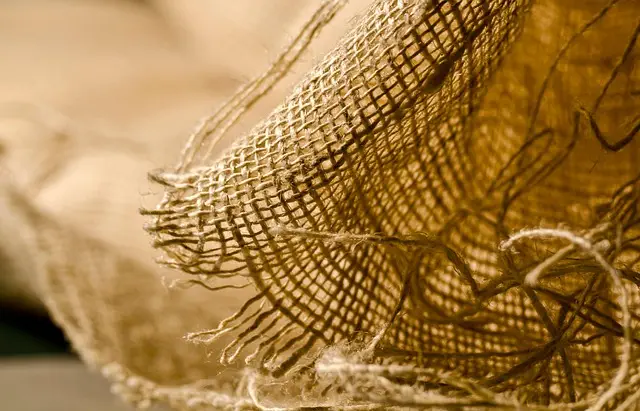Muscle soreness after exercise can be alleviated with kratom tea, a natural alternative to painkillers. Mitragyna speciosa (kratom) powder, in strains like Maeng Da or White Vein, is steeped in hot water for 10-15 minutes to create a relaxing and effective tea for muscle relief. The anti-inflammatory compounds in kratom help reduce pain and swelling, making it popular among athletes and fitness enthusiasts as the best way to manage post-workout muscle soreness while avoiding drowsiness associated with synthetic drugs.
Muscle soreness after workouts can be a significant barrier to achieving fitness goals. This article explores natural strategies for relief, with a focus on kratom supplements. We’ll delve into the science behind muscle soreness and its causes, then uncover how this ancient herb can provide a soothing solution. Learn the best way to prepare kratom tea for maximum effectiveness, explore its benefits for recovery, and discover how to seamlessly integrate it into your post-workout routine for faster, healthier muscle healing.
- Understanding Muscle Soreness and Its Causes
- Exploring Kratom: A Natural Relief Option
- The Best Way to Prepare Kratom Tea for Maximum Effectiveness
- Benefits of Kratom Tea for Muscle Recovery
- Integrating Kratom into Your Post-Workout Routine
Understanding Muscle Soreness and Its Causes

Muscle soreness is a common issue that can arise from various activities, such as intense workouts or physical labor. It’s essentially the body’s response to muscle damage and inflammation. When you engage in strenuous exercise, tiny tears can form in your muscle fibers, leading to discomfort, stiffness, and pain. This process triggers a series of chemical reactions, causing blood vessels to dilate and immune cells to rush to the site, which results in increased blood flow and swelling—a key contributor to that familiar achy feeling.
One of the best ways to alleviate muscle soreness is by preparing soothing kratom tea. Kratom, derived from the Mitragyna speciosa plant, has been used for centuries in Southeast Asia for its pain-relieving and anti-inflammatory properties. The optimal method to harness these benefits involves brewing a strong batch of kratom tea. Start with high-quality kratom powder, typically available in various strains like Maeng Da or White Vein. Heat fresh water to just below boiling point, pour it over the kratom, steep for 10–15 minutes, and strain before drinking. This natural approach offers a more gentle yet effective solution compared to traditional over-the-counter painkillers.
Exploring Kratom: A Natural Relief Option

Kratom, derived from the leaves of the Mitragyna speciosa plant, has gained popularity as a natural alternative for muscle soreness relief. This herb is known for its unique properties that interact with opioid receptors in the body, offering pain-relieving and relaxing effects. Exploring kratom as a remedy can be an appealing option for those seeking non-pharmaceutical solutions to manage chronic or post-workout muscle aches.
One of the most common and effective ways to use kratom for soreness is by brewing it into tea. The best way to make kratom tea involves steeping dried kratom leaves in hot water, similar to making any other herbal infusion. This process extracts the active compounds, providing a soothing drink that can help relax muscles and alleviate discomfort. Many enthusiasts experiment with different preparation methods and kratom strains (or veins) to find their preferred balance of pain relief and energy enhancement.
The Best Way to Prepare Kratom Tea for Maximum Effectiveness

To prepare Kratom tea for maximum effectiveness, start by measuring out a generous amount of your preferred Kratom powder. The standard dose is around 1-3 grams, but adjust according to your tolerance and desired effects. Next, bring fresh, cold water to a rolling boil—using filtered water can enhance taste and reduce impurities. Once boiling, pour the hot water over the Kratom powder in a teapot or mug designed for steeping. Allow it to steep undisturbed for 10-15 minutes to extract the full range of compounds.
For optimal results, use a high-quality Kratom strain known for its muscle soreness relief properties, such as Red Bali or Maeng Da. Experiment with different brewing times and temperatures—some prefer a longer steeping period for stronger effects—but remember that prolonged exposure can also increase bitterness. Add honey or lemon to taste, as these natural ingredients can enhance both the flavor and potential anti-inflammatory benefits of your Kratom tea.
Benefits of Kratom Tea for Muscle Recovery

Kratom tea has emerged as a popular natural remedy for muscle soreness and recovery, offering several advantages for athletes and fitness enthusiasts. The active compounds in kratom, such as mitragynine and 7-hydroxymitragynine, have anti-inflammatory properties that can help reduce muscle pain and swelling. When prepared correctly, kratom tea is considered the best way to make use of this herb’s benefits.
The process of brewing kratom tea involves steeping dried kratom leaves in hot water, which extracts their potent compounds. Many users swear by its effectiveness in soothing achy muscles after intense workouts or physical labor. Unlike some synthetic pain relievers, kratom is believed to enhance overall well-being and mental clarity while providing relief from muscle soreness. Additionally, it promotes relaxation without drowsiness, making it a preferred choice for those seeking natural solutions for active recovery.
Integrating Kratom into Your Post-Workout Routine

After a intense workout, muscle soreness can be an unwelcome distraction from your fitness goals. Kratom, a natural herb with analgesic and anti-inflammatory properties, offers a promising solution. Integrating kratom into your post-workout routine is one of the best ways to alleviate discomfort and support recovery.
The best way to make kratom tea involves steeping dried kratom leaves in hot water for several minutes. Experiment with different ratios of kratom to water to find the ideal strength. Adding a touch of honey or lemon can enhance both taste and absorption. Consuming this soothing tea shortly after your workout can help ease muscle aches, allowing you to actively recover and push your fitness boundaries more effectively.
In conclusion, muscle soreness can significantly impact your post-workout recovery and overall well-being. While various relief strategies exist, kratom supplements offer a natural, effective solution. By understanding the causes of muscle soreness and exploring kratom’s potential, you can harness its benefits through preparing the best way to make kratom tea for maximum effectiveness. Integrating this herbal remedy into your post-workout routine may provide faster recovery times and enhance overall performance, making it a valuable addition to any fitness regimen.






